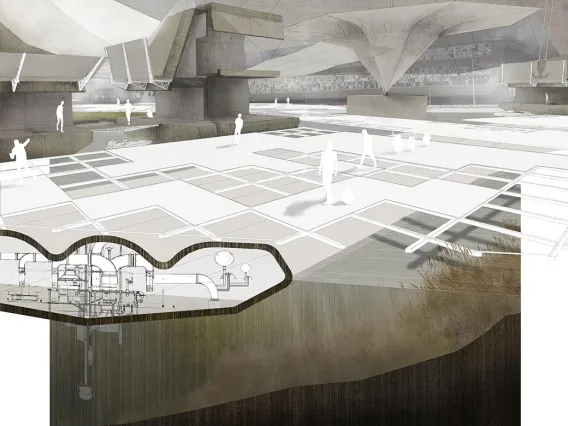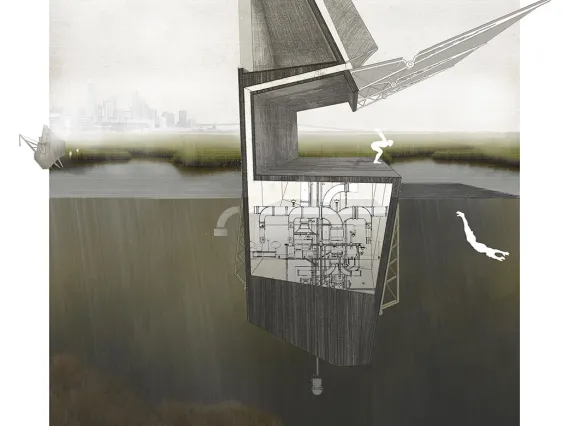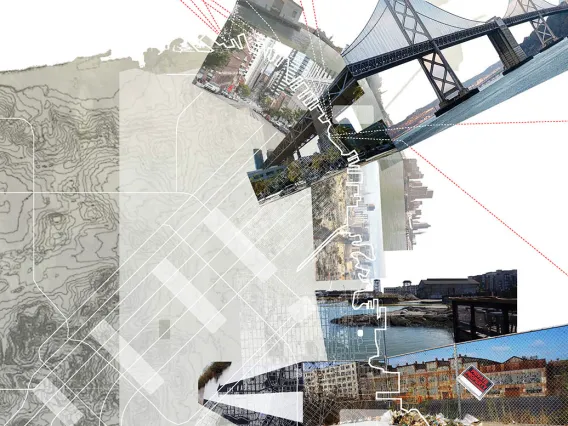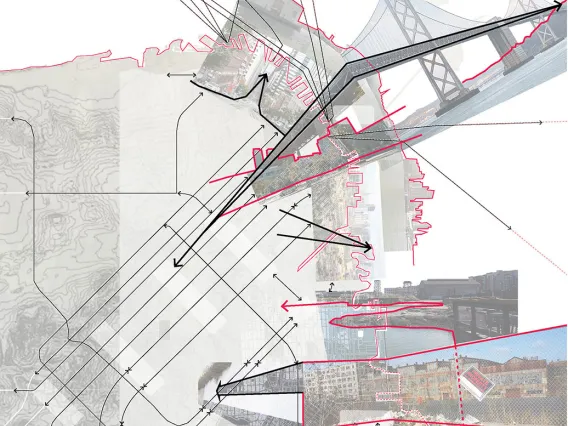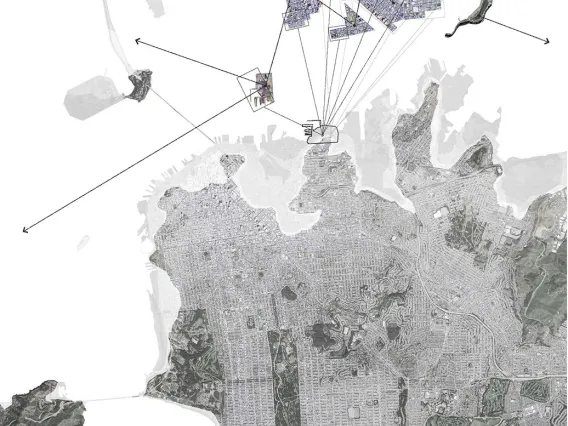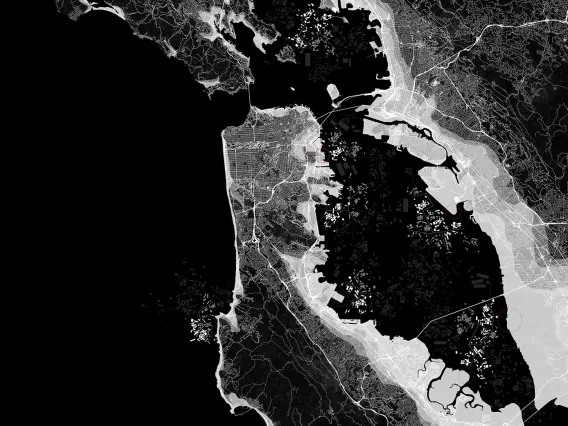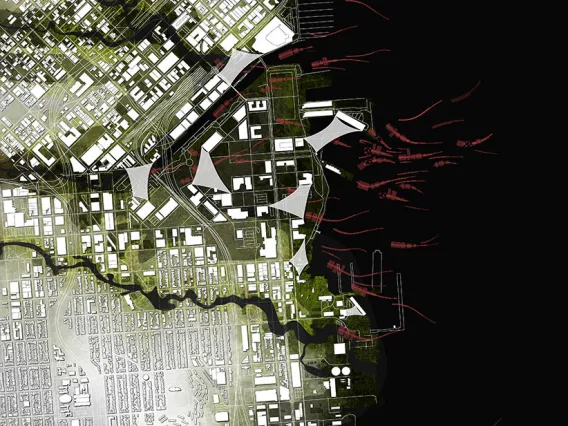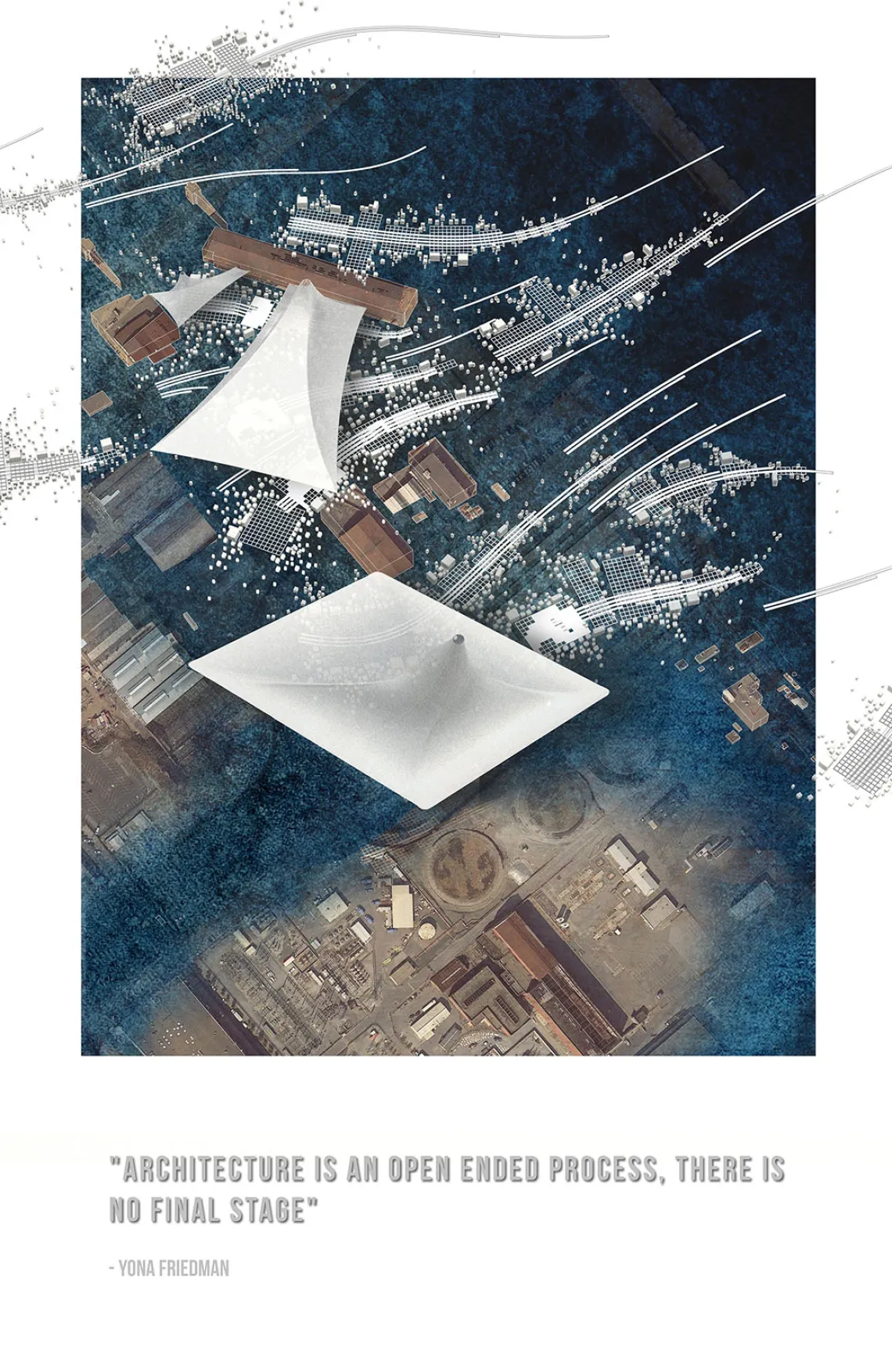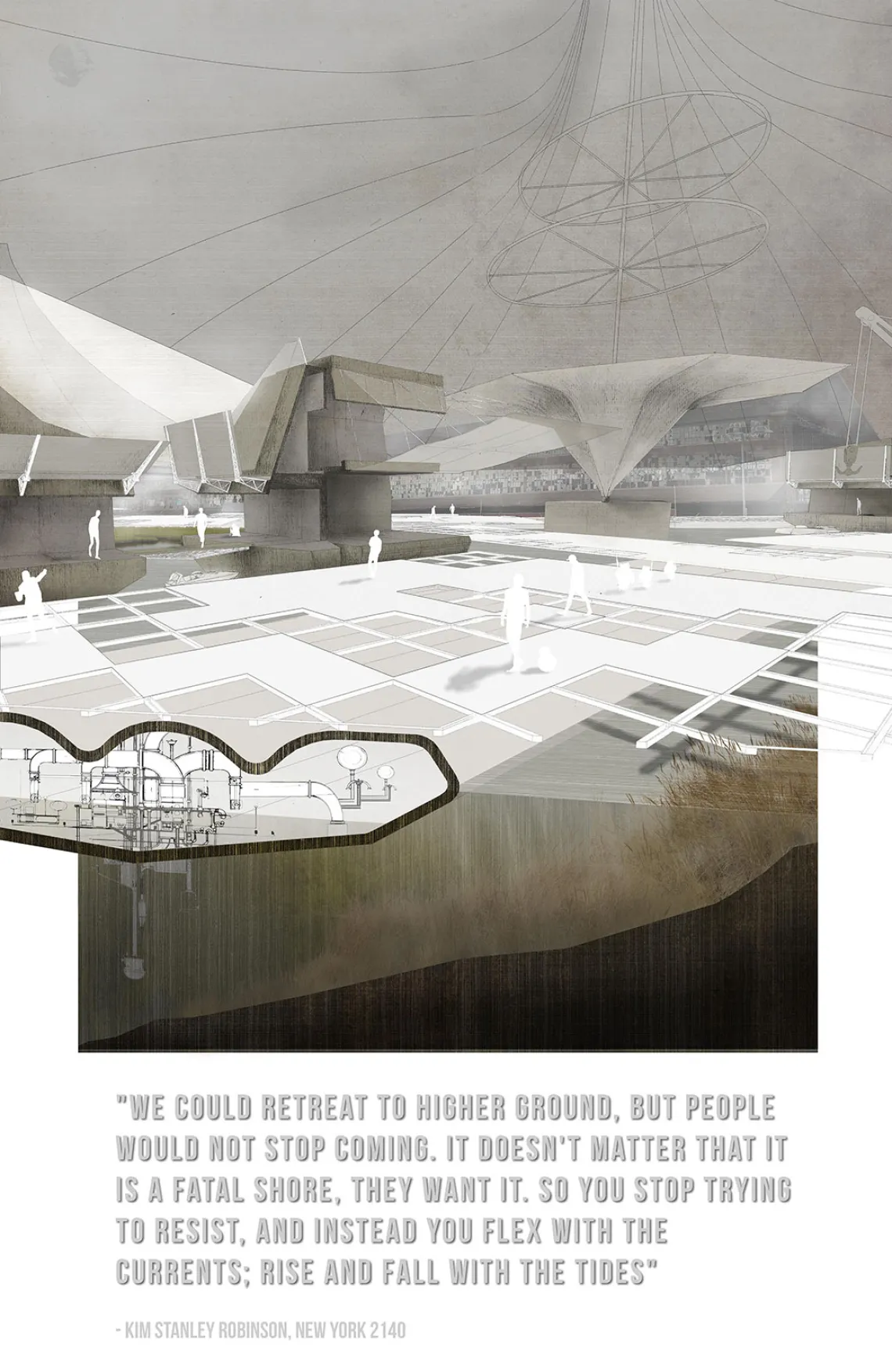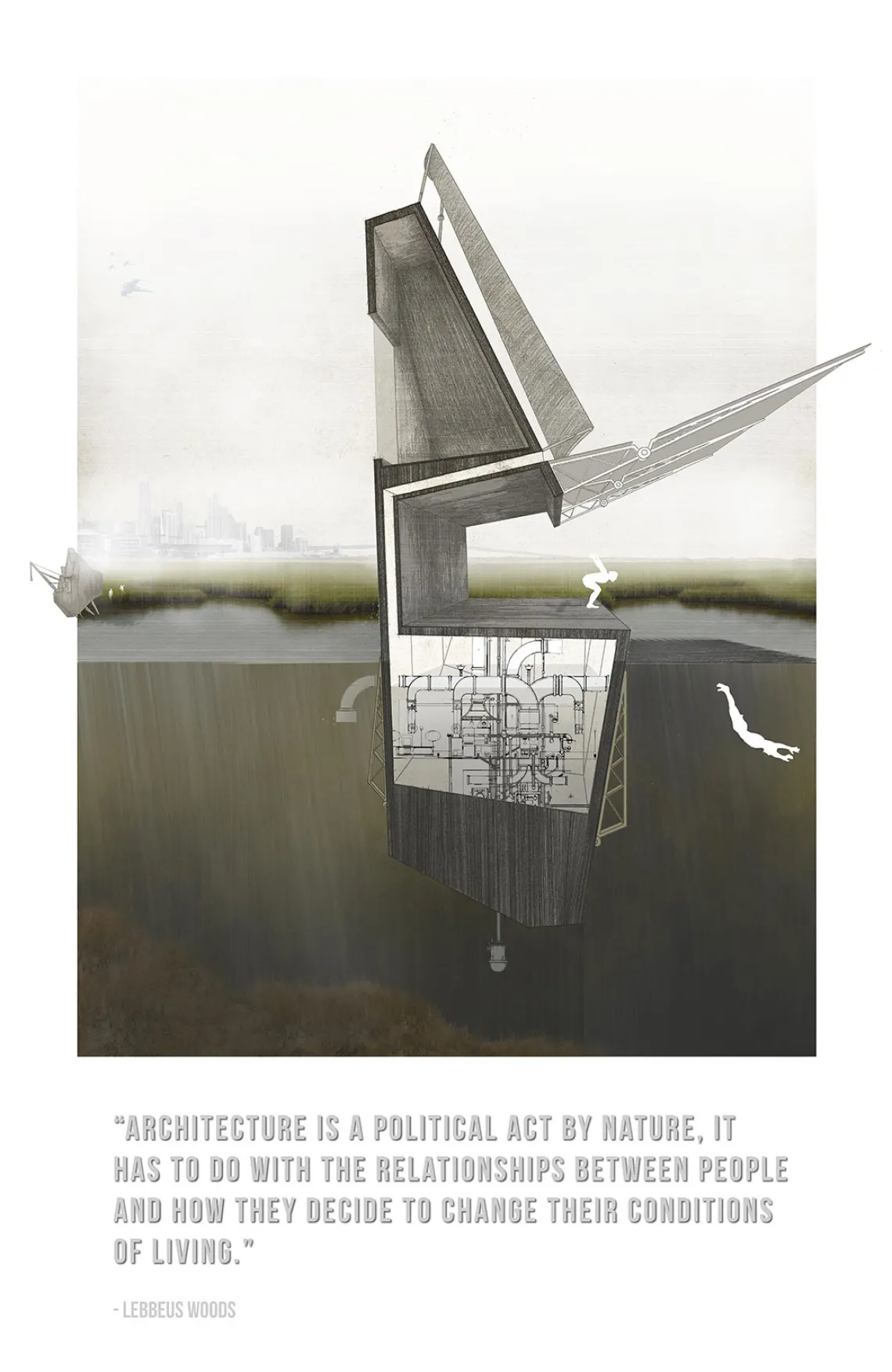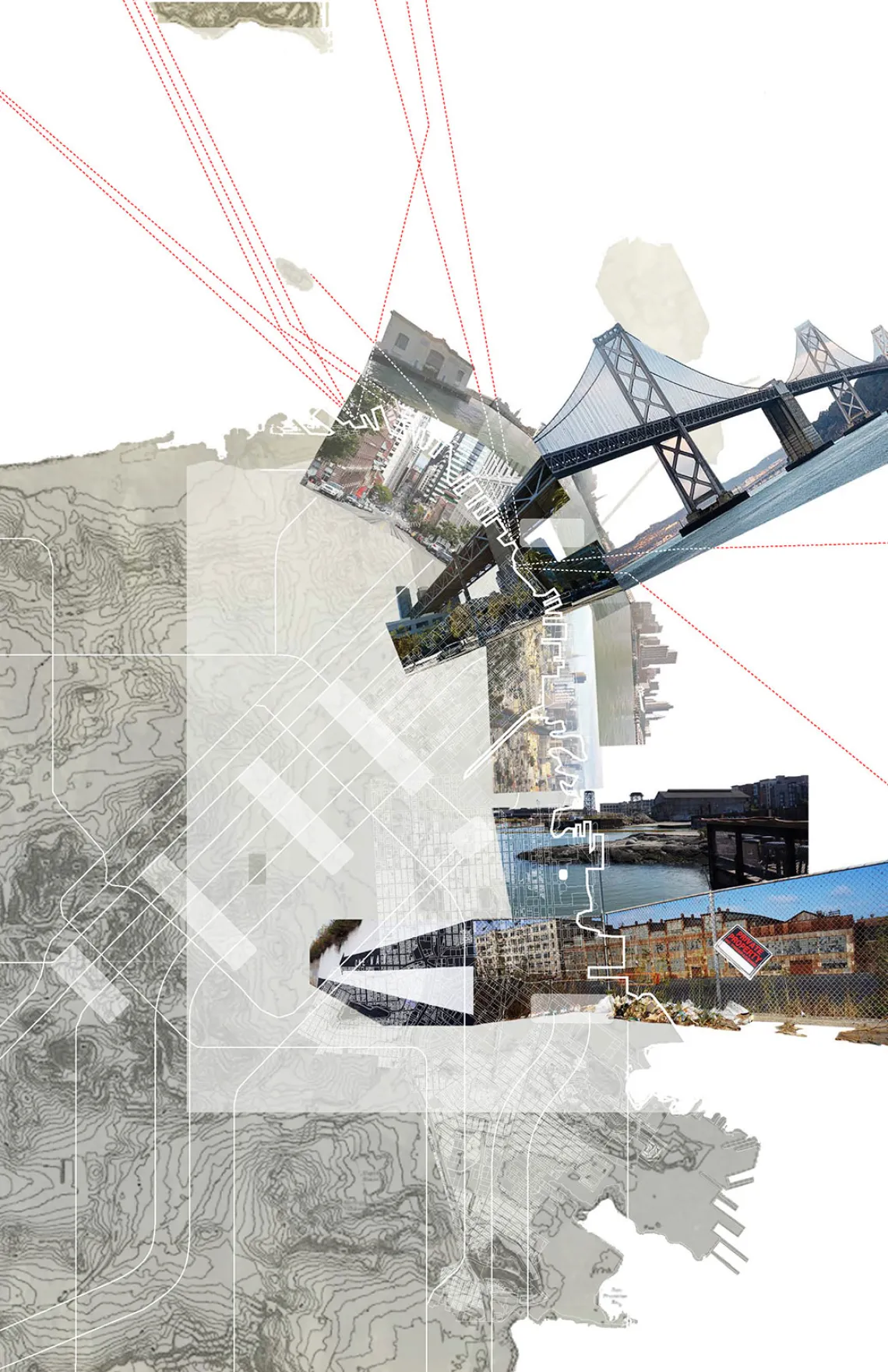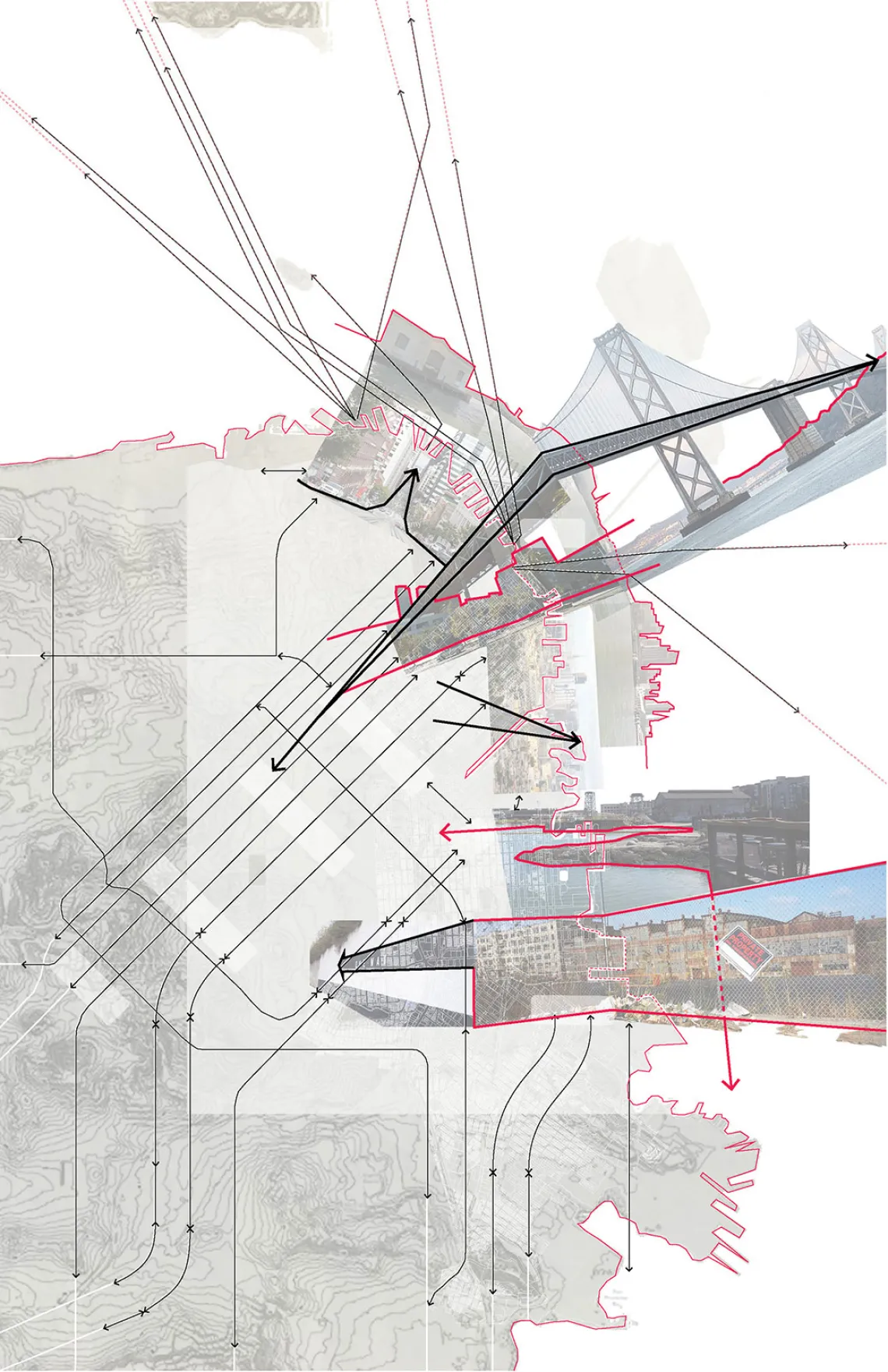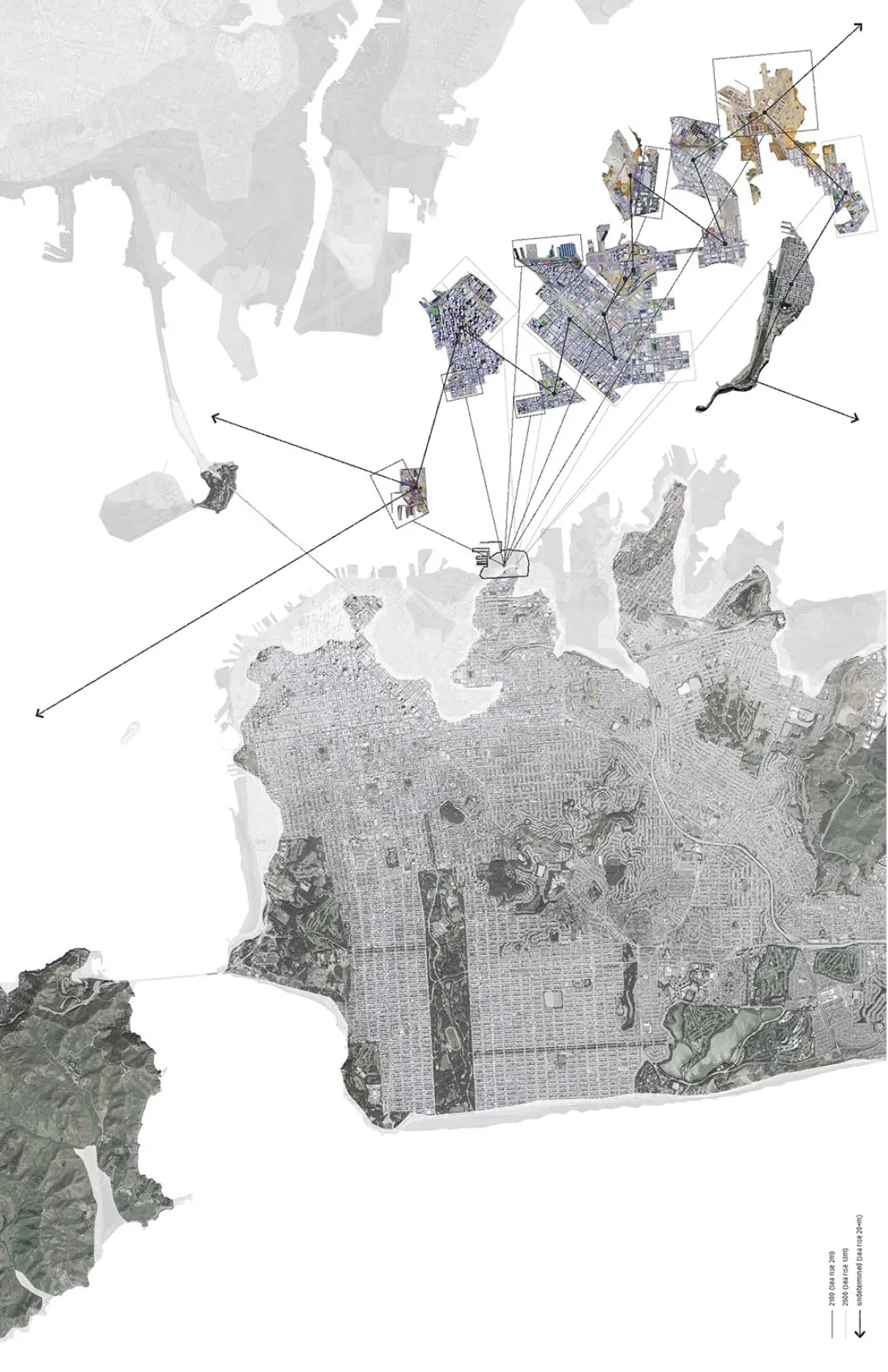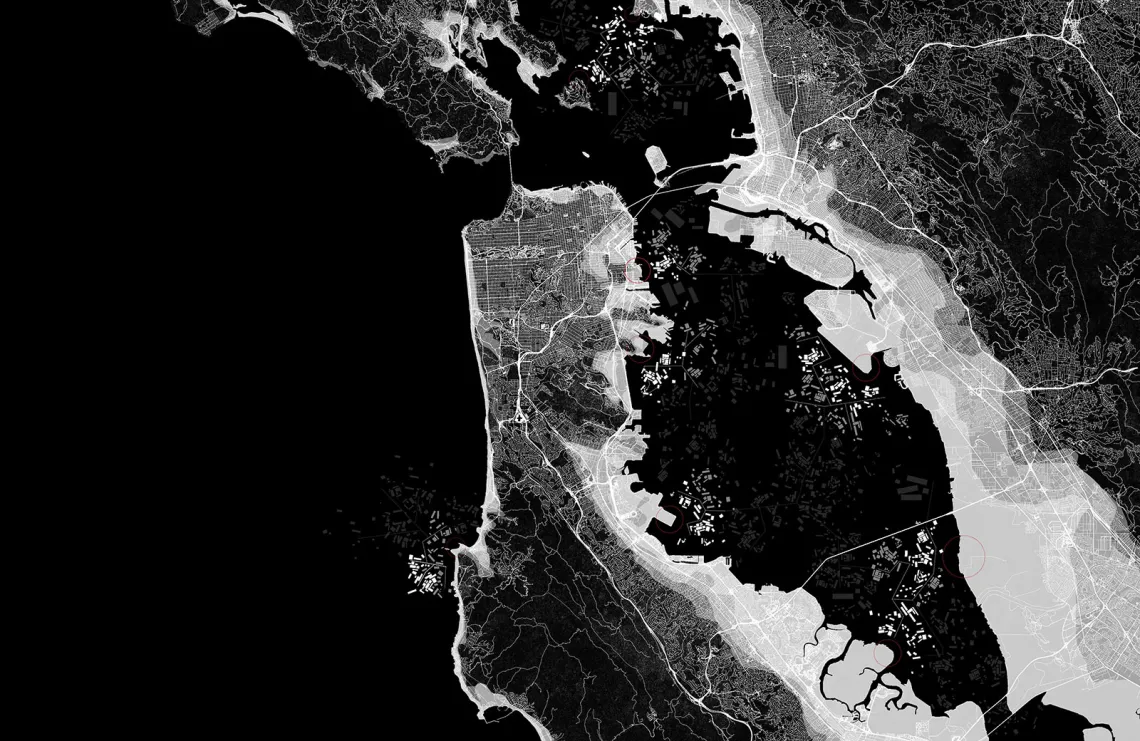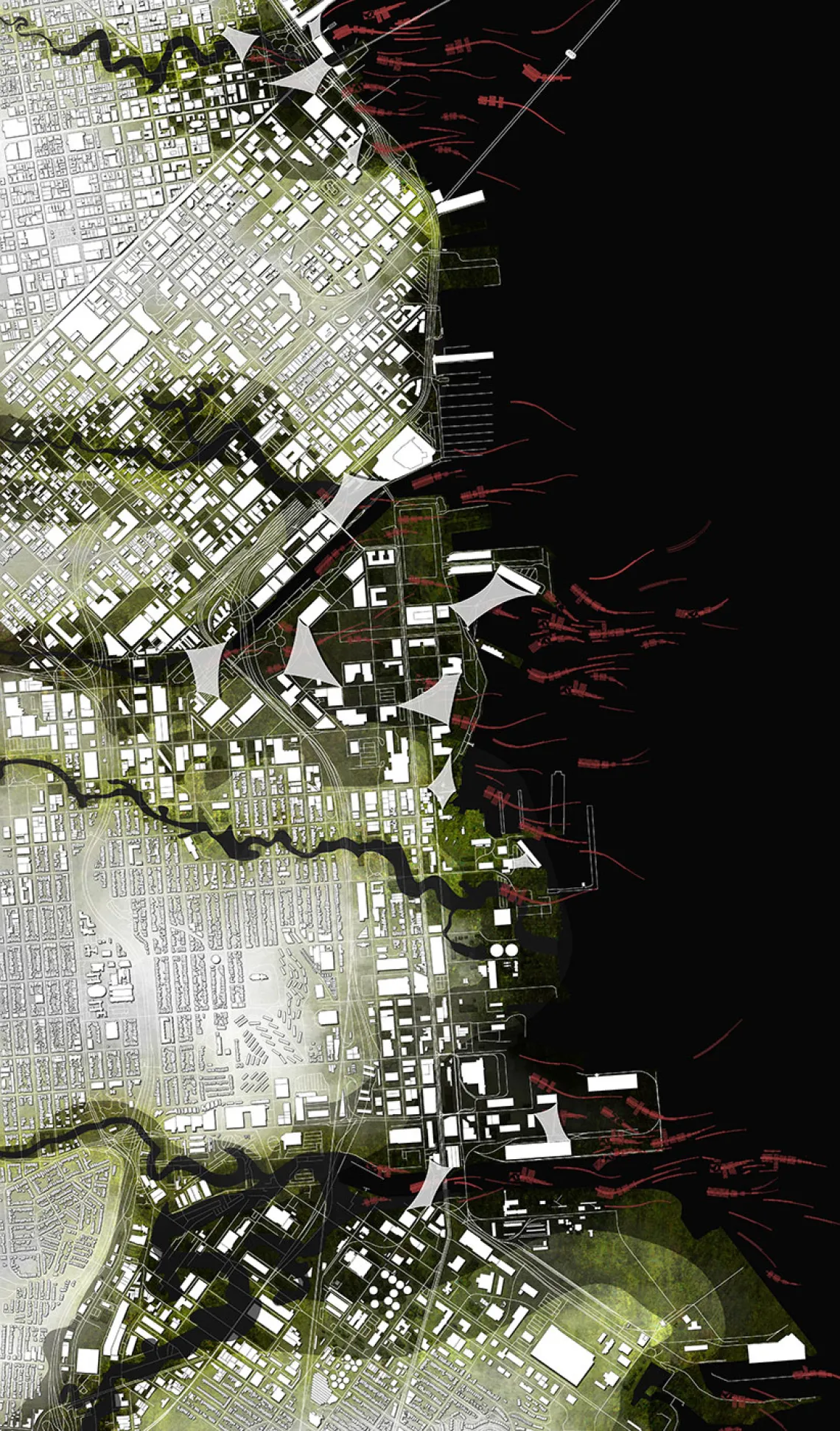The Floating City: Kate Stuteville '18 B.Arch

Narrated through speculative design, The Floating City by Kate Stuteville tells the story of a future world dealing with rapidly rising sea levels and population growth, by proposing a new type of community that can inhabit a world we have yet to build upon: the water’s surface. The project begins in the year 2100 in the San Francisco Bay, where unused industrial infrastructure on the edges of the city is sacrificed to rising water, leaving these relics of the past half-submerged in a marsh landscape. Taking full advantage of the new environment, a growing population of people begin to craft a new life there, allowing for more bottom-up development than the previous setting permitted.
At their core the communities consist of osmotic power machines and fog nets that provide energy, water and an apparatus for which to build upon, attach to and come together. What forms around them comes from the ingenuity of its inhabitants, and takes full advantage of the new building surfaces by leveraging their ability to move around fluidly as the communities need. At this stage the floating communities begin to influence areas beyond their site, and possibly beyond San Francisco itself, carrying with them new implications for technology, community, culture and politics.
Image Gallery
Click a thumbnail below to view a larger image and begin slideshow:
All images are by Kate Stuteville and may not be used or reproduced without express written permission of their creator.


